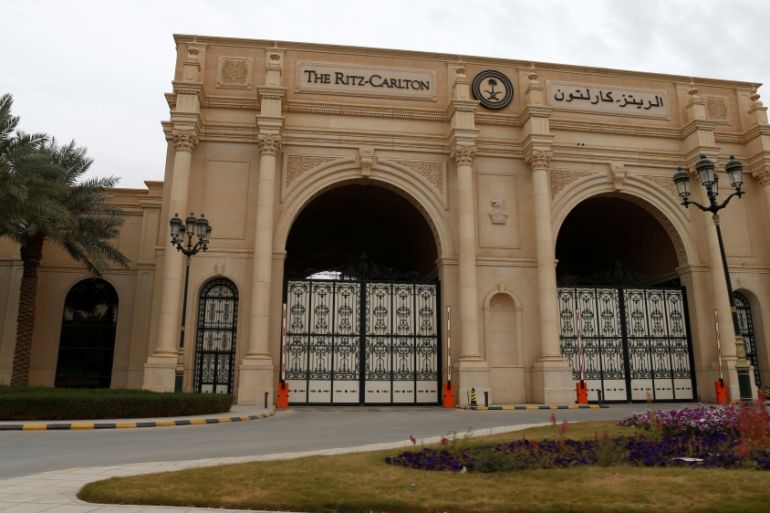Saudi Arabia used abuse to seize billions during purge: NYT
In interviews with former detainees and relatives, newspaper finds 17 detainees were hospitalised after facing abuse.

At least 17 Saudi detainees were subjected to physical abuse during what was termed an anti-corruption campaign that saw the arrest of hundreds of prominent businessmen and princes in November, the New York Times has found.
The newspaper interviewed relatives, advisers, associates of the detainees, as well as Saudi officials, who denied the allegations.
“Relatives of some of the detainees said they were deprived of sleep, roughed up and interrogated with their heads covered while the government pressured them to sign over large assets,” the article, published on Sunday, said.
According to the newspaper, the 17 detainees were hospitalised after facing abuse, while one Saudi general died in custody.
“One person who saw the corpse of the officer, Maj. Gen. Ali al-Qahtani, said that his neck was twisted unnaturally as though it had been broken, and that his body was badly bruised and distended.
“A doctor and two other people briefed on the condition of the body said that it had burn marks that appeared to be from electric shocks,” the newspaper said.
Major General al-Qahtani was an aide to the son of the late Saudi King Abdullah.
In response to questions by the New York Times about the claims of abuse, an official at the Saudi Embassy in Washington, DC, told the newspaper: “All allegations of abuse and torture of those investigated during the anti-corruption proceedings are absolutely untrue.”
The official added that the detainees had “full access” to legal counsel and medical care.
‘Family feud’
In early November 2017, the Saudi government launched what they called an “anti-corruption” crackdown led by Crown Prince Mohammad bin Salman.
At least 380 people were held for questioning, while 65 were held in custody at the Ritz-Carlton hotel in the capital Riyadh. Those arrested included Prince Alwaleed bin Talal, a billionaire businessman with stakes in companies such as Twitter, Inc, as well as Nasser bin Aqeel al-Tayyar, a board member of Saudi Arabia’s biggest travel company, Prince Mitaab bin Abdullah, the head of the National Guard, and Adel Faqih, the minister of economy.
Most of those detained were released after several months. The kingdom said it seized billions in various types of assets including real estate, commercial entities and cash.
Saudi officials said the crackdown, which came through royal decree, was in response to “exploitation by some of the weak souls who have put their own interests above the public interest, in order to illicitly accrue money”.
Citing an associate of King Abdullah’s family, the New York Times said part of the campaign “appears to be driven by a family feud, as Crown Prince Mohammed presses the children of King Abdullah, the monarch who died in 2015, to give back billions of dollars that they consider their inheritance”.
According to former detainees quoted by the newspaper, many are being forced to wear tracking devices on their ankles.
“We signed away everything,” a relative of a former detainee, said. “Even the house I am in, I am not sure if it is still mine.”